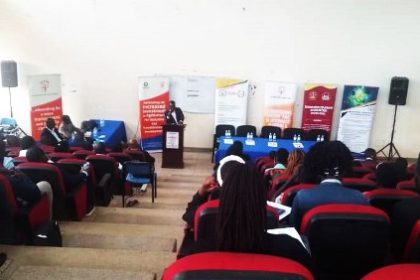To be credible in Burundi, Museveni needs to take a dose of his own medicine
KAMPALA, MARCH 1- When hostilities’ broke out in South Sudan’s capital Juba in December 2013, President Yoweri Museveni’s phone rang off the hook as western leaders implored him “to do something,” about the deteriorating situation in the country that borders his to the north.
Over the course of the 30 years of his tenure, President Museveni has become an African colossus with his military engaged in a theater stretching from the Indian Ocean to the heartland of Africa in the Central African Republic.
It was not surprising therefore when both the regional and international community fell back to him to try and sort out the then creeping crisis in Burundi that culminated into a failed coup against the government of President Pierre Nkurunziza last May.
Now a tired African warrior with a good understanding of human motivation, in Burundi, Museveni reached for the low hanging fruit. His prescription to the parties to the conflict was to sit down in one room and agree a power sharing deal.
This is the line he has been pushing regardless of the fact that all legitimate political forces are represented in the Burundi government under the current dispensation and that the trouble makers are really anarchists that should be sanctioned rather than condoned.
Out of respect, the government in Bujumbura has acquiesced. But increasingly, Museveni’s actions on his home front are beginning to undermine his credibility before the Burundians. To many, Museveni’s reaction to opponents such as retired Col. Besigye and General David Sejjusa who is incarcerated because he insists on being retired from a military he served with distinction, are to say the least, baffling.
For one, unlike the mis-adventurers of Bujumbura, the duo have not taken up arms against the state and have tried to use only legitimate means to stand up to Museveni. The various conspiracies the state has associated them with appear to reside only in the minds of a partisan security establishment.
Finally, Museveni has dismissed calls for a unity government as proposed by immediate former presidential candidate General Benon Biraaro. Given his aversion to sharing power with others why in the world should the Burundians listen to him?
In the circumstances, it would appear the only way Museveni can redeem his credentials as a mediator would be to practice at home, what he preaches to Nkurunziza.

 Shell Club rewards first winners with brand new motorbikes in Mbale
Shell Club rewards first winners with brand new motorbikes in Mbale
 CSBAG roots for increased funding for renewable energy
CSBAG roots for increased funding for renewable energy
 Equity walks tried and tested path to deliver solid half-year
Equity walks tried and tested path to deliver solid half-year
 Nile Breweries primes retailers for brave new world
Nile Breweries primes retailers for brave new world
 Uganda calls for collaboration with airlines in fight against illicit trade in wildlife
Uganda calls for collaboration with airlines in fight against illicit trade in wildlife
 Airline industry top guns dust-off passports for Uganda hosted 55th AFRAA annual meet
Airline industry top guns dust-off passports for Uganda hosted 55th AFRAA annual meet
